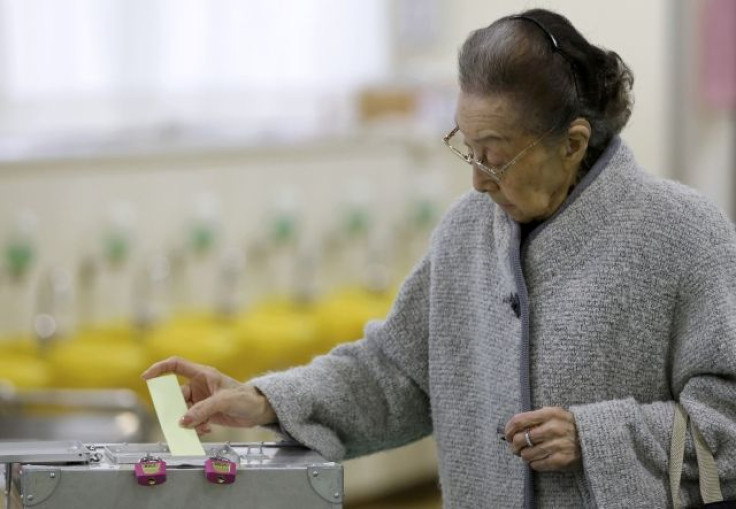Japan Votes In General Elections; Shinzo Abe’s Conservative LDP Predicted To Win

Japanese voters cast ballots in the parliamentary elections Sunday, which is expected to return to power former Prime Minister Shinzo Abe of the center-right Liberal Democratic Party, defeating current Prime Minister Yoshihiko Noda's Democratic Party after just three years in office.
Japanese media predicted that the LDP would win a majority of the seats in the 480-seat lower house of parliament, although surveys showed that many voters remained undecided amid disillusion in Japan over politics.
The conservative LDP was swept out of office by the DPJ in 2009, ending more than 50 years of nearly uninterrupted rule.
Polls opened at 7 a.m. local time (2200 GMT) and closed at 8 p.m. (1100 GMT), when major TV broadcasters will issue exit poll forecasting results, Reuters has reported.
Hawkish leader Abe’s return to power could harden Japan's stance in a territorial row with China, and strengthen its pro-nuclear energy policy despite last year's Fukushima disaster and pressure from a section of the public to cut back on nuclear energy.
Though Abe had tried to improve Sino-Japanese relations during his earlier premiership, opinion polls have indicated that he is unlikely to take a similar approach if he assumes power this time.
In an interview with the Wall Street Journal in November, Abe stressed his resolve to maintain a tough stance in confronting China with regard to the island dispute.
"What we have now are furious fights between coast guards," Abe had said referring to China’s naval intrusions. "For now, we need to focus on making sure we defend these islands. We need to display our strong resolve and action."
LDP is also expected to back a looser monetary policy and big spending to reverse deflation and tame a strong yen, the Associated Press has reported.
Several new parties, advocating a variety of policy views, were formed in the run-up to the elections.
The brand new Tomorrow Party, led by a female governor, Yukiko Kada, wants to eliminate nuclear power plants within 10 years, opposes the tax hike and advocates more money for families, according to an AP report.
With energy policy being one of the most-debated topics during the election campaign, more than 1,000 people opposed to atomic power staged a march in Tokyo on the eve of the poll, demanding a nuclear-free society, the Japan Times has reported.
© Copyright IBTimes 2024. All rights reserved.












